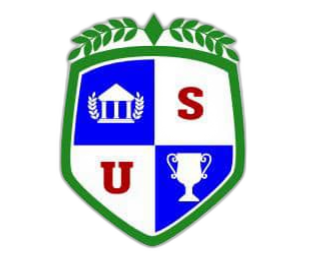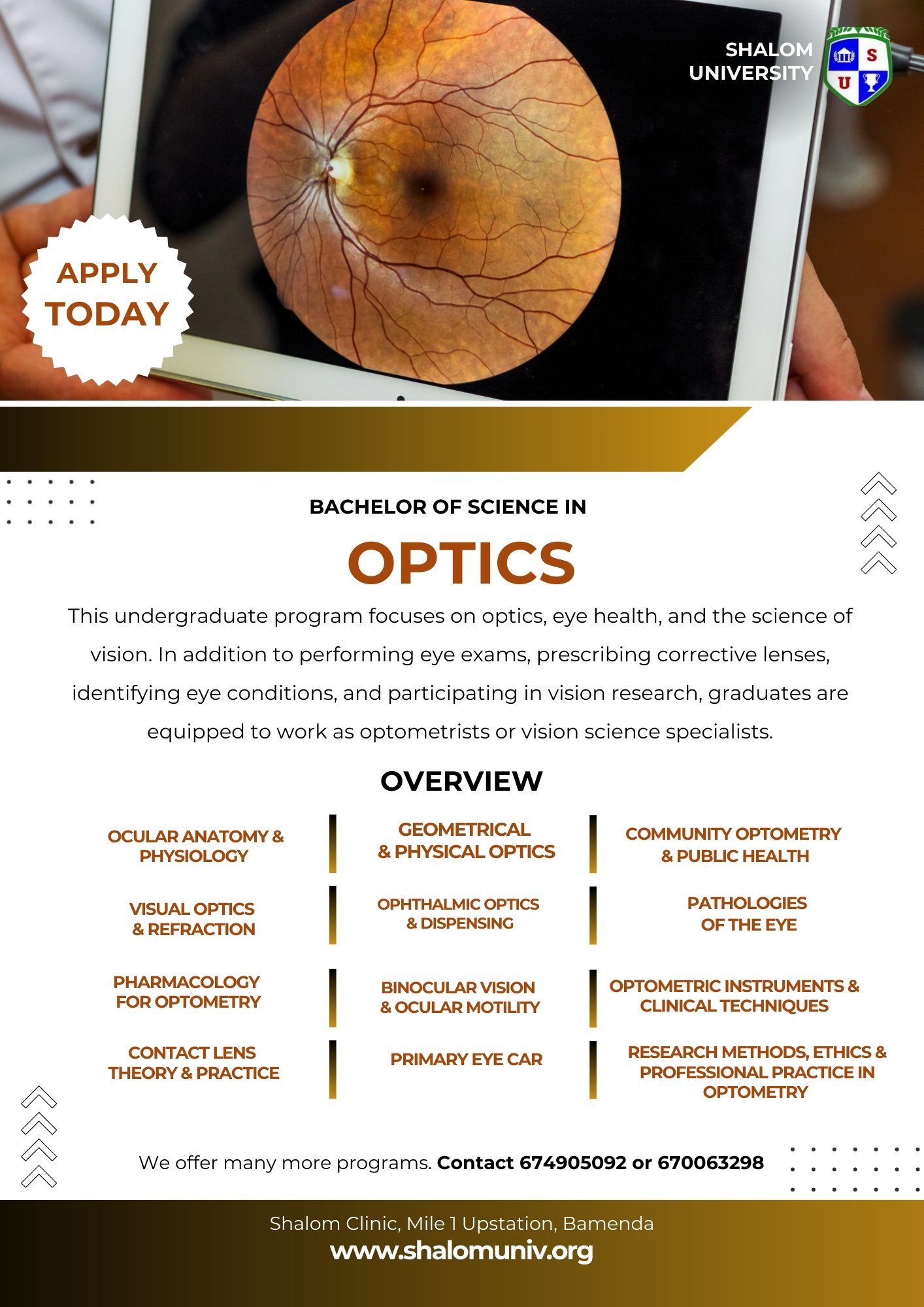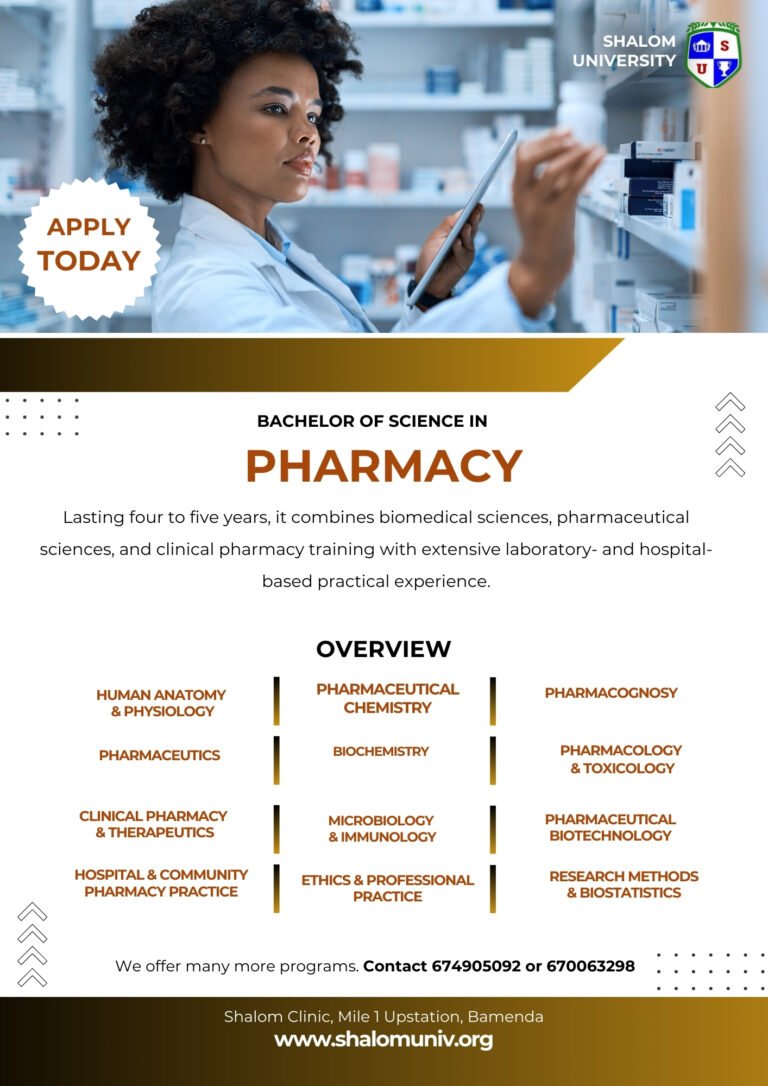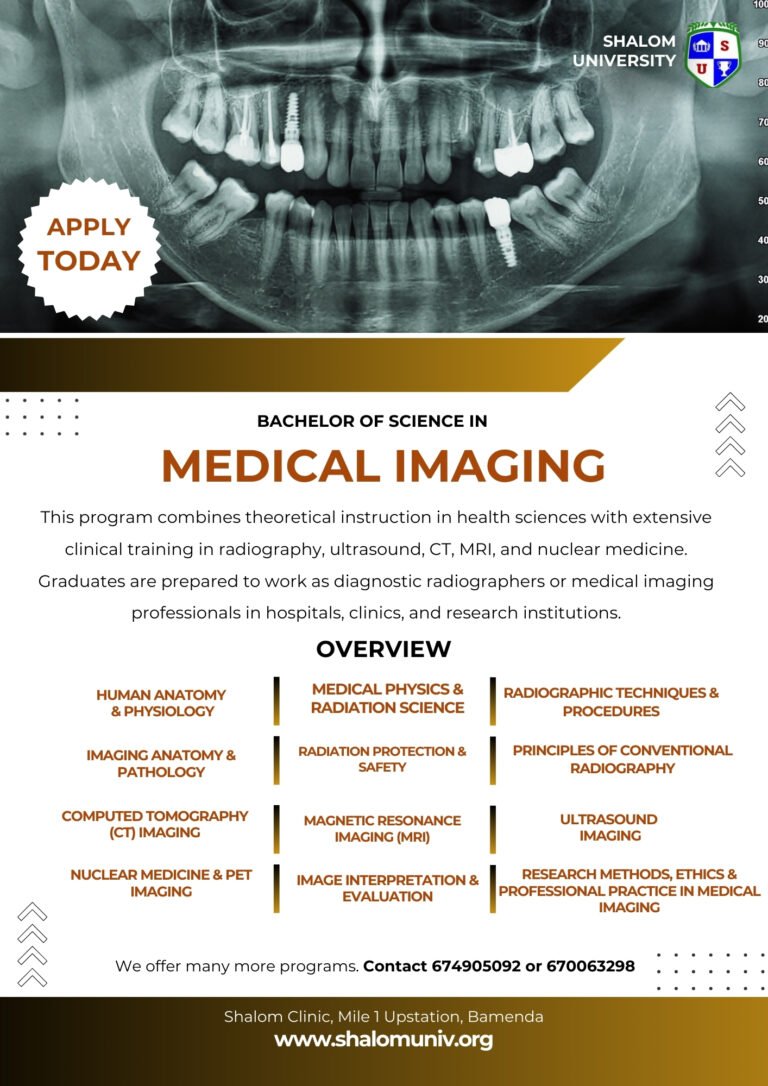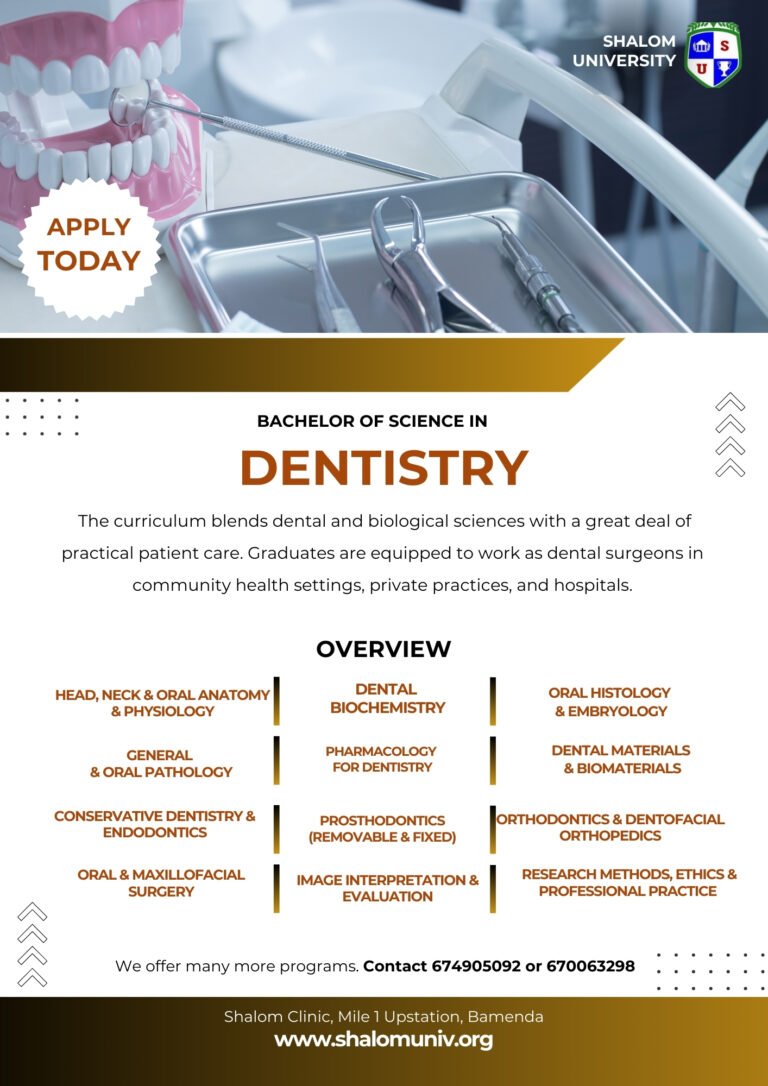Vision is one of our most important senses, shaping how we learn, work, and connect with the world. Yet millions worldwide suffer from visual impairments that could be prevented or corrected through quality eye care. This is where optometrists and vision scientists play a vital role.
The Bachelor of Science in Optometry & Vision Science (BSc Optometry) at Shalom University prepares students to diagnose, manage, and prevent eye and vision problems while advancing the science of vision care. Through a blend of theoretical courses, clinical practice, research, and community outreach, the program equips graduates to serve as competent eye care professionals, researchers, and leaders in public health.
Below, we break down the key courses and training highlights of this program.
Human Anatomy & Physiology (with Ocular Anatomy & Physiology)
The foundation of optometry begins with a deep understanding of human anatomy and physiology, with special emphasis on the ocular system. Students learn about the structure and function of the eye, visual pathways, and related systems, enabling them to understand normal vision and detect abnormalities early.
Geometrical & Physical Optics
Optics is the science that makes modern eye care possible. This course covers light properties, refraction, reflection, lenses, and optical instruments. By mastering geometrical and physical optics, students gain the technical foundation to understand how corrective lenses and devices improve vision.
Visual Optics & Refraction
This module introduces students to the behavior of light within the eye, refractive errors, and correction techniques. Practical skills in refraction allow future optometrists to prescribe glasses and contact lenses, restoring clear vision for patients of all ages.
Ophthalmic Optics & Dispensing
Here, students learn about lens design, frames, materials, and lens fitting. Dispensing involves not only technical knowledge but also patient-centered care, ensuring individuals receive the best corrective eyewear for both function and comfort.
Microbiology & Pathology of the Eye
Understanding eye diseases requires knowledge of microorganisms and pathological processes. This course explores ocular infections, corneal ulcers, conjunctivitis, and degenerative diseases, preparing students to identify, prevent, and co-manage such conditions.
Pharmacology for Optometry
This module introduces the drugs used in eye care, including antibiotics, antivirals, anti-inflammatory agents, and mydriatics. Students also learn about dosage, administration routes, and drug safety, equipping them to manage eye conditions responsibly and in collaboration with ophthalmologists.
Binocular Vision & Ocular Motility
Clear, single vision requires the eyes to work together. This course covers eye coordination, binocular vision development, and disorders such as strabismus and amblyopia. Students are trained to assess and manage binocular vision issues, improving visual efficiency and quality of life.
Optometric Instruments & Clinical Techniques
Students are introduced to the latest diagnostic and therapeutic technologies in optometry. Training includes retinoscopy, slit-lamp examination, tonometry, perimetry, and fundus evaluation, ensuring graduates can provide accurate and comprehensive eye examinations.
Contact Lens Theory & Practice
Contact lenses offer an alternative to glasses for millions worldwide. This course trains students in lens types, fitting techniques, lens care, and management of complications. Practical labs give hands-on experience with contact lens fitting for different refractive and corneal conditions.
Ocular Disease & Primary Eye Care
Students learn to identify, manage, and co-manage common ocular diseases such as glaucoma, cataract, diabetic retinopathy, and age-related macular degeneration. The focus is on early detection, primary eye care, and referrals, preparing graduates for critical roles in healthcare systems.
Community Optometry & Public Health
Optometrists are not only clinicians but also public health advocates. This course focuses on vision screening programs, eye health education, prevention of blindness, and outreach in underserved communities. It equips students to contribute to global eye health initiatives aligned with WHO’s Vision 2030 agenda.
Research Methods, Ethics & Professional Practice in Optometry
Evidence-based practice is essential in modern optometry. This course trains students in research design, data analysis, and ethical considerations while emphasizing professional conduct, legal responsibilities, and patient-centered care. Graduates are prepared not just to practice but also to advance optometry through research.
Career Opportunities in Optometry & Vision Science
Graduates of the BSc in Optometry & Vision Science at Shalom University can pursue careers as:
- Clinical optometrists in hospitals and private practice.
- Vision scientists in research institutions.
- Public health eye care specialists in NGOs and government programs.
- Optical dispensers and contact lens specialists.
- Academics and educators in optometry schools.
The degree also serves as a foundation for postgraduate studies such as MSc in Optometry, Vision Science, or Ophthalmic Research.
Why Choose Shalom University for Optometry?
- Comprehensive Curriculum covering science, clinical skills, and community health.
- Hands-on Training with modern optometry equipment and real-world clinical exposure.
- Research-Oriented Approach fostering innovation in eye care.
- Community Engagement through outreach programs and public health campaigns.
- Global Standards aligned with international optometry education frameworks.
For more, visit the official program page: BSc in Optometry at Shalom University.
Frequently Asked Questions (FAQ)
Q1: How long does the BSc in Optometry at Shalom University take?
A: The program typically spans four years of full-time study, including coursework, lab training, clinical rotations, and research.
Q2: What are the admission requirements?
A: Applicants should have a high school diploma with strong science background (biology, physics, and chemistry). International students are also welcome.
Q3: Does the program include clinical training?
A: Yes, students undergo clinical rotations in hospitals, optometry clinics, and community health settings to gain practical experience.
Q4: What career opportunities are available for graduates?
A: Graduates can become clinical optometrists, vision researchers, optical dispensers, or public health specialists in eye care.
Q5: Why choose Shalom University for optometry studies?
A: Shalom University offers world-class faculty, advanced clinical training, community engagement, and global relevance, making it an excellent choice for aspiring optometrists.
